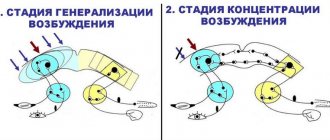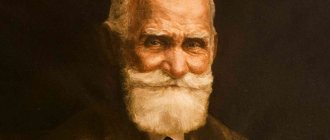Human actions are governed by moral rules. Moral values and norms guide and correct the life of an individual in relation to public opinion. Typically, a person is oriented towards general moral standards and fulfills his own ethical responsibilities. Moreover, mass patterns, stereotypes and recognized models do not affect people’s responsibility for abandoning these principles. Everything is determined by conscience. Sometimes the concepts of “morality” and “morality” differ in shades of meaning, but in most cases they are considered synonymous. Moral values are one of the fundamental concepts of philosophy.
What are moral values?
Moral values are a set of ethical ideals, a set of historically and socially determined highest principles of human life. Moral values reflect people’s ideas about good and evil; they cover the entire set of moral norms and concepts , including concepts of happiness and unhappiness, love and hate, work, honesty, etc. It is with the help of these concepts that a person evaluates everything that happens around him, his own and other people’s actions, the correctness or incorrectness of one’s behavior.
Moral values guide the development of an individual and his activities, determine his position on any important issue, and form his idea of the world around him, society and his own place within society. In addition, they influence the formation of a person’s behavioral model, his goals in life and methods of achieving them, his civic position and the level of social activity. When his own value system collapses, a person finds himself in a personal crisis , he is confused, and can hardly make decisions on his own.
The baggage of human values is objective in its essence, and each value is objective separately. Values exist in our world regardless of our desires - we can only accept or reject them. However, the value system of an individual and its hierarchy is strictly subjective, it is based on the experience, knowledge and needs of a particular individual, on the personal choice of a particular person.
Liberty
Freedom is a very multi-valued concept, but it can be characterized. A person can always feel when he is free and when he is not. If he acts based on his principles, desires and is responsible for the result of his actions, he is free.
That is, he is responsible for his actions and decides for himself what to do. This means free will and no coercion from outside.
Examples of moral values
A fundamental and generally accepted moral value is a person’s love for other people. This type of love cannot be compared with the feelings experienced by people towards members of the opposite sex, since this type of love is manifested in the feelings that people show towards others, regardless of their age, nationality, gender and social background. It is this kind of love that allows a person to understand the needs of other people, not to harm them, teaches empathy, compassion and mutual assistance, and prevents manifestations of physical or psychological violence towards one’s neighbor. It is very difficult to achieve this, since human nature has a craving for competition, the struggle for survival, envy and hatred.
Love promotes the manifestation of other moral values in a person , for example, kindness and generosity , which are closely related to a sincere desire to help others. The most valuable gift from one person to another is his time, which should be given to family, friends, loved ones, acquaintances and, if necessary, even strangers, because often giving something is even more pleasant than receiving gifts.
Honesty is recognized as another important moral quality. The ability to remain honest with people and with yourself, combined with the ability not to flaunt the good deeds you have done, always inspires respect. A person with the qualities and values listed above is an example of a truly noble personality. Other important moral values include positive intentions, a benevolent attitude towards others, altruism, and a sense of respect for people.
beauty
Beauty is the most mysterious spiritual value; each person understands it in his own way. If you do a survey among people, the results will be different.
For some, beauty is a bird that pecks seeds from a person’s hand, for others it is a luxurious English garden... Therefore, we can say that beauty is what surrounds us. It exists in relationships between people, in us, in others, in nature.
It is beauty that inspires to create - it encourages musicians and writers to create real masterpieces that do not lose their uniqueness through the centuries... This is a very subtle substance, and only a sensitive person can understand it.
Types of moral values
Moral values are divided into several categories. They can be individual, group and universal; depending on the type of relationship, they are divided into complementary and mutually exclusive.
Modern scientists consider universal human norms to be dominant in relation to group values, since universal human values are more universal , objective, impartial and universal, although they are capable of intraspecific transition, and even of losing their former significance and meaning when external conditions change, for example, in the process of modernization society.
The self-improvement of a particular individual is inextricably linked with his observance of the principles of morality, and this observance must be strict and constant. To truly become a better person, a person should try to be kinder, more attentive and caring to the people around him. In addition, it will be useful for everyone to be honest with others and with themselves, try to control their own emotions, thoughts and actions, not give up their principles and fulfill their obligations.
How are they chosen?
For many centuries, since ancient times, there has been the concept of eternal values that have not lost their meaning in our days. Humanity has always condemned:
- meanness;
- ignobility;
- perfidy;
- deceit;
- dishonesty;
- slander.
The norm and correct behavior have always been:
- decency;
- nobility;
- loyalty;
- sincerity;
- restraint;
- humanity;
- responsiveness.
Such qualities are directly related to the upbringing and self-awareness of the individual, the sense of the importance of these character traits. Compliance with a moral model requires the individual to voluntarily comply with ethical rules. Moral values and norms are manifested by moral foundations:
- hard work;
- collectivism;
- patriotism;
- philanthropy;
- good faith.
Life requires from a person the ability to reconcile personal needs with the needs of society, the ability to treat fellow humans with attention, and build friendly relations with them on the basis of mutual assistance. Love for the fatherland is manifested in honoring the traditions of the native country, understanding the importance of making a contribution to the global civilization of our people. Diligence allows us to recognize the spiritual significance and importance of work for the sake of human self-affirmation.
The meaning of moral values
Thanks to moral guidelines and values, people have the opportunity to determine their own position in front of their loved ones, friends, society and themselves, while simultaneously forming a personal attitude towards such categories as good and evil, deceit and honesty, morality and immorality, etc. The primary function of morality is to regulate human behavior in society and regulate the relationship between the individual and society. An additional function of morality includes its promotion of the formation of individual consciousness, as well as its influence on the formation processes:
- a person’s views regarding the meaning of life;
- the range of obligations of the individual to society;
- need to respect others.
Through the morality of consciousness, a person’s behavior pattern begins to be consistent with moral norms. A characteristic distinguishing feature of moral values is their control over the consciousness and activity of an individual in a number of important areas of life, including:
- sphere of life;
- interpersonal, family and work relationships;
- communication with other people.
A person encounters all of the above aspects every day, therefore, it is on moral ideas that his behavioral model is built, his relationship with the surrounding reality and people.
Development
As you know, nature is changeable, and all living things are always in motion. Everything changes: our views, tastes, interests, the old is new, etc.
Development is evolution, movement. Changes happen naturally, and no matter how hard someone tries to stay in place, no one can do it.
Development is also a spiritual value; many take development for some kind of life changes, material growth, but spiritual development is the evolution of personal qualities, the improvement of one’s inner world.
The main goal of development is to realize one’s nature, to discover oneself. You can never lose the fruits of spiritual work, which cannot be said about the material things you have accumulated.
The process of formation of moral values
There are two interconnected processes for the formation of moral values: awareness of the significance of morality in ordinary, everyday reality and an emotional and creative approach to it. These processes should be combined with emotional development, since it is not enough for children to simply convey information about ethics and then simply require them to comply with moral standards. It is many times more difficult for them to form their own attitude towards moral standards, based on the desire to comply with these guidelines. Another feature of the process of formation of moral values is the understanding of the need for such a model of behavior. In this case, both direct emotions and the internal need to establish certain moral standards within society are significant.
Different scientists have different approaches to the interpretation of the development of moral values. For example, T.S. Karanchentsev and Yu.V. Larin call this process processing associated with the transformation of the external environment into sensual human nature and the cultural world. These processes are carried out by people themselves and are based on their own activities. Based on an analysis of philosophical, psychological and pedagogical literature, the point of view asserts that mastery includes the process of mastering and assimilation by people of moral norms, consisting of content, results, activity and target components.
V.A. Titov ranked mastery among the concepts used as generic ones in relation to the concept of “morality”. It is in it that two important features that characterize morality are combined: its ability to reflect reality and its ability to transform it. Consequently, modern science considers the development of moral values as a special method that determines the uniqueness of morality. Mastery is the result of a multivariate contact between the human world and the world of morality, acting as a way of educating the individual. In pedagogy, the essence of the term “mastery” is reduced to the process of a person’s mastery of moral norms and values.
Creation
Creativity is characteristic of every person, but not everyone discovers it in themselves. This is the creation of something new, something that has not been seen before.
It is usually believed that creativity is creating a work of art, writing classical music, but a little girl, for example, who wrote a couple of lines in her notebook about a bear cub walking in a meadow - this is already creativity, she is a creator and has created something new.
Creativity is the ability to create something new; it always elevates the soul and ennobles the personality.
conclusions
Each of us has our own, hierarchically structured system of values that connects the spiritual component of the individual with the spiritual culture of society. Value guidelines here act as the most important components of the personality structure; they are complex and multi-level integral formations.
The personality structure includes various levels of interaction between the individual and the social in a person, between his own future, present and past, as well as forms of consciousness and cognition by the individual of the surrounding world. Consequently, the basis of a person’s value guidelines is a certain value system, which consists, among other things, of moral values that were formed in the human consciousness in the process of the individual’s acquaintance with the world around him.
Knowledge
The knowledge we receive helps us discover the true meaning of life, allows the mind to be in harmony with logic, faith and feelings. It is also given to us to know the fundamentals of nature.
A person not only learns about the world, but also tries to understand the meaning of his existence. Knowledge is an important component of consciousness; human development cannot be imagined without it.
A person striving for truth will always try to accumulate as much knowledge as possible. Probably everyone has heard the phrase “Knowledge is power”, this is true, but not everyone thinks about how to gain this power.
Useful knowledge is information that has passed through time. This is a kind of instruction that we apply to our lives.
True
People have a sparkle in their eyes when it comes to seeking the truth, the truth. This is a person’s natural desire to understand the world in which he lives, as well as himself. Truth is a spiritual value, it gives a person a lot - with its help we can analyze what is happening, our actions, we consider certain actions that we perform for morality and correctness. For everyone, truth has its own understanding - for one, something that for another has no significance will be sacred. Truth is what has been tested by time and experience.
Good
Goodness is one of the most important spiritual values. It manifests itself in man’s desire to improve life on Earth not only for himself, but also for others.
A good person always strives for truth and justice. A good deed is manifested in sincerity - this is not when a person does something for gain, but when he tries to do something for another selflessly.
Kindness has always been valued, but people sometimes suffer greatly because of their sensitivity and concern for others. Kindness is a spiritual need for everyone; when we do something useful and good, we feel better, more confident, and our souls become light.
14 3










